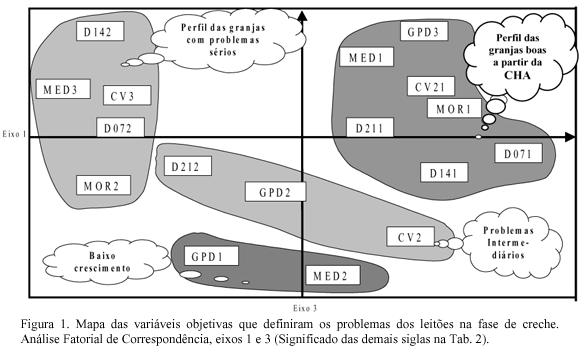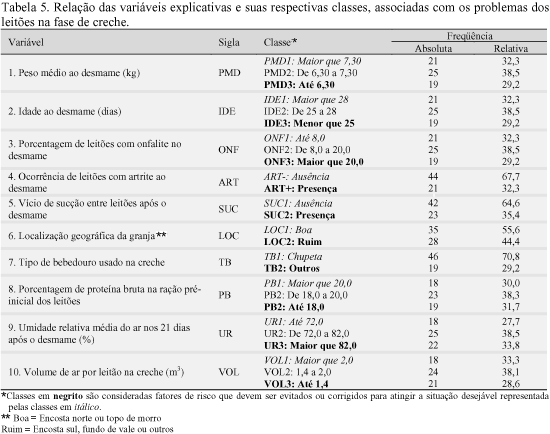Epidemiological essay was carried out in 65 herds of southern Brazil, with the objective to identify risk factors that better explain the occurrence of problems with the pigs during post-weaning phase. In each herd, a batch of pigs was followed during the first three post-weaning weeks, when variables like building conditions, nutrition, management, environment and health were taken into account. Descriptive and multivariate methods had been used to analyze the data. Target variable used to describe pig problems during post-weaning phase had been: weight daily gain, weight coefficient of variation at 21 days post-weaning, occurrence of diarrhea in the batch, mortality rate and the medicine use dressings against the diarrhea. With the help of these variables a synthetic variable was created for discriminating the farms in three categories: good, intermediate and bad. Among explicative variables, 10 risk factors had been selected as more important, making it possible to identify farms with high trend to present problems during post-weaning phase. One concludes that in many herds of the south region of Brazil some risk factors exist that favor the occurrence of problems with the pigs during the weaning phase, some of as consequence of others from maternity phase.
Pig; epidemiology; ecopathology; risks factors; post-weaning









